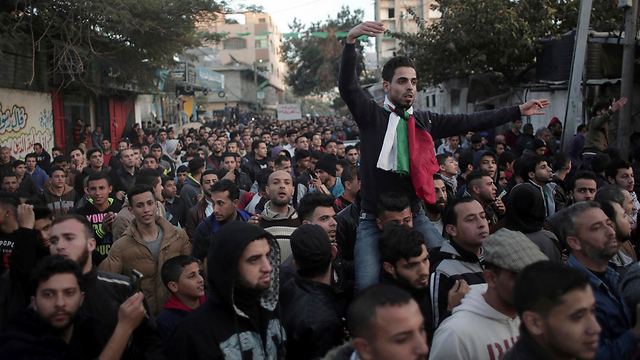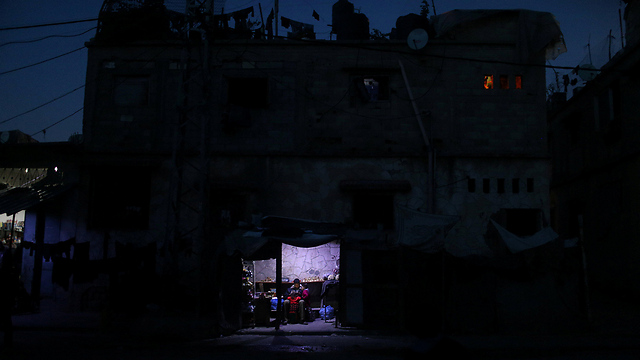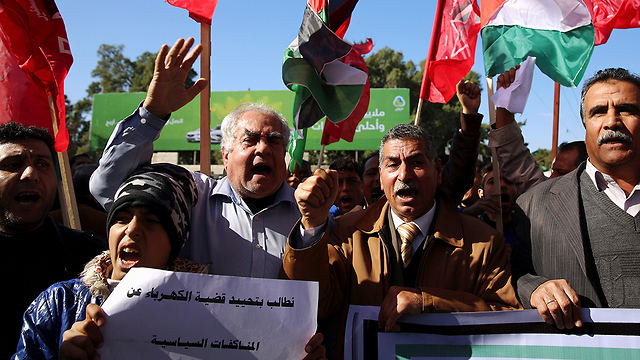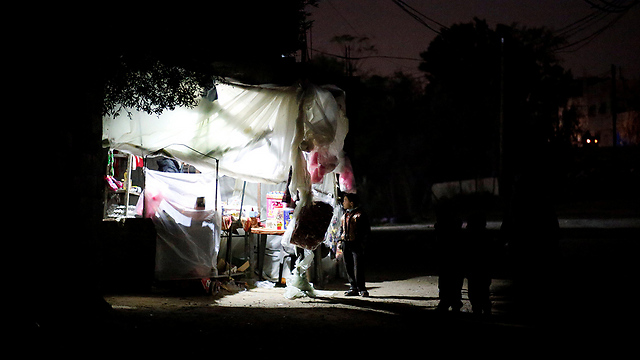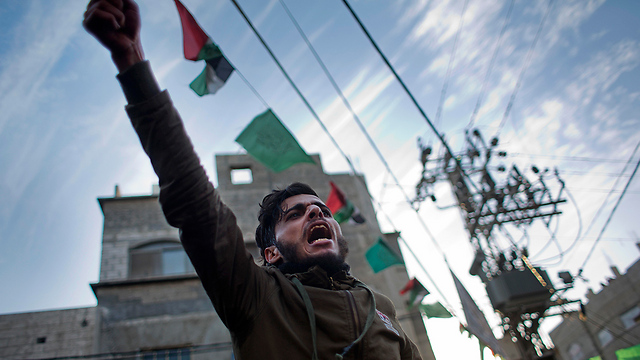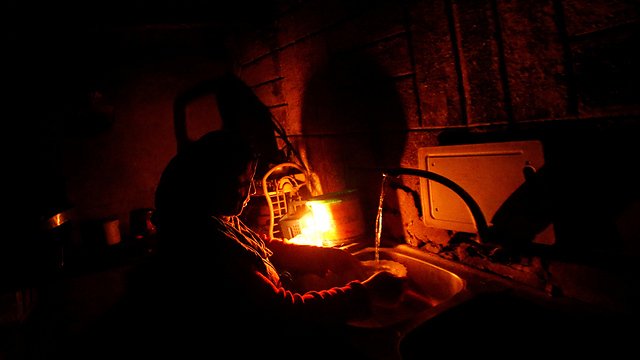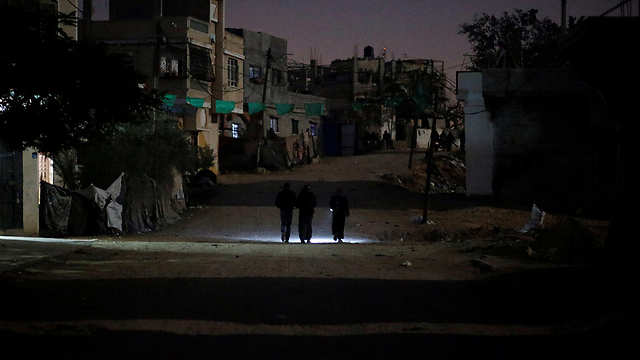

Mass protest in Gaza against Hamas amid electricity crisis
Severe electrical shortages in Gaza energizes thousands to take to the northern streets of strip, sparking arrests and prompting Hamas to respond with live rounds fired into the air; Residents currently receive just 3-4 hours of electricity per day against a background of a political feud between the terror organization and the regime in Ramallah; Israel responsible for the largest power supply.
For weeks, Gazans have been making do with less than half their usual electricity supply—barely a few hours a day—with no sign of the shortages alleviating anytime soon, fuelling distress and frustration among the population.
Normally, Gaza's power alternates on eight-hour cycles, with generators providing electricity to those that can afford it in the down times. But since late last year, there have been only three or four hours of electricity a day in total.
The costs of running generators have spiraled. People are trying to light and heat their homes with candles or by burning scrap wood. Families wake in the middle of the night, when the power sometimes comes on, to take showers or wash clothes.
"We live like rats," said Mazen Abu Reyala, an unemployed fisherman and father of five, sitting around a primitive stove that he uses to warm his house. "Should I wait until we get burned? Or should I wait to return home and see that my children burned themselves because they lit candles."
The cause of the shortage is on the one hand simple and on the other complicated, with some citizens blaming Hamas, the Islamist group that runs Gaza, Hamas officials blaming the rival Palestinian Authority, based in the West Bank, and still others pointing the finger at Israel.
The simple explanation is that Gaza requires 450-500 megawatts of power a day but is receiving barely a third of that. About 30 MW produced by its own ageing power plant, 30 MW imported from Egypt and the most—120 MW being supplied from Israel.
With temperatures dropping to four or five degrees centigrade at night, people are trying to run electric heaters and radiators, driving up power demand.
The local power plant—which was heavily damaged by Israeli bombing during a war in 2006 which ensued following a barrage of rockets fired from Gaza—which remains only at about half of potential capacity, could produce slightly more, but there are not enough funds to buy fuel to boost output.
With unpaid consumer bills of around $1 billion, the power company is not in a position to seek more credit. Officials say they need $500 million to rehabilitate the power network. But with Israel and Egypt maintaining a tight blockade on Gaza stemming from consistent use of raw materials for civilian purposes being transformed into military weapons used against Israel, getting replacement parts is not even that straight forward.
The Palestinian Authority, which pays for power supplied by Israel and Egypt, normally transfers fuel to Gaza and exempts it from most taxes. But because of its own financial constraints, it is no longer offsetting all the tax, angering Hamas.
Spokesman Fawzi Barhoum said Hamas was open to solutions and accused the Palestinian Authority of using the crisis as a mean to "damage Hamas's image and sanction Gaza's people".
Despite supplying the largest amount of electricty, Israel's electricity company could supply more power, and has provisions in place to do so, but it has not been paid for all the electricity it has supplied in the past and wants financial guarantees before it delivers more.
Gaza's population of two million is growing increasingly angry. There have been protests and more are planned. Adel Al-Mashwakhy, a local comedian, was detained on Wednesday, hours after posting a video on Facebook criticizing Hamas for the shortages. The video was soon watched 180,000 times.
"There is no work, no crossings, no food, no water to drink and also there is no electricity," he says in the video.
"Enough Hamas. Enough, enough, enough. We want electricity, we want electricity, we want electricity."
At night, Gaza is pitch black, with no street lights or electricity in most homes. On street corners, makeshift fires can be seen burning, with small crowds gathered for warmth.
The noise of generators can be heard from some factories and wealthier households, but most cannot afford to run diesel generators 20 hours a day.
Bakery owner Haitham Badra said he had suffered huge losses because he had to buy more fuel for generators.
"We used to buy 1,500 liters of diesel week. Now we have to buy 4,000 liters at a cost of 20,000 shekels a week," said Badra. "If the crisis continues much longer, all bakeries and restaurants in Gaza will collapse."
Tareq Lubbad, spokesman of the power company, said Gaza normally needed 450 MW a day, but that had increased due to high winter demand. He warned of deeper cuts to come.
"If no substantial solutions are found the crisis will escalate and hours without power will increase," he said.
Aware of the difficulties in Gaza which have resulted from Hamas's wars waged against its neighbor to the east, Israel's Defense Minister Avigdor Lieberman recently referred to the recent quiet in the area, saying, "If the quiet on the border with the Gaza Strip continues, we will allow for a significant increase in humanitarian aid."
Moreover, Ynet has learned that for the first time, a decision was made to establish a conveyor system for transferring fuel and basic construction materials from the Erez border crossing to the northern Gaza Strip.
Matan Tzuri contributed to this report.














